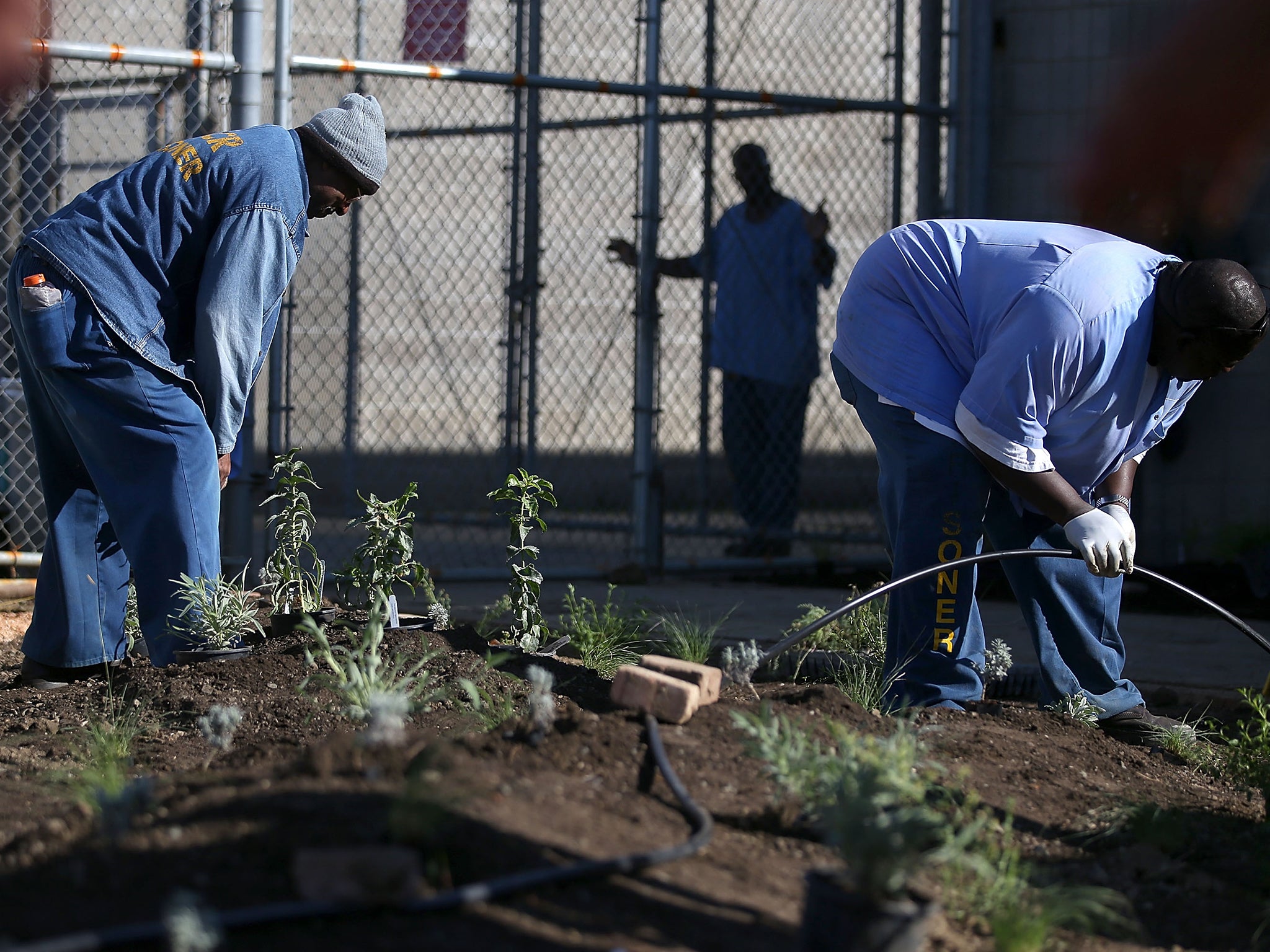Obama announces reintegration measures amid largest early-release of federal prisoners in US history
As many as 6,600 inmates have had their punishments trimmed retroactively by the US Sentencing Commission

As prisons across America freed thousands of inmates early, President Barack Obama visited a half-way house in New Jersey to announce measures to ease their reintegration into society.
The largest early-release of federal prisoners in US history began on Friday and was completed today involving as many as 6,600 inmates serving time for non-violent drug offenses. Their punishments had been trimmed retroactively by the US Sentencing Commission. Tens of thousands of additional offenders are expected to be set free under the same initiative in the coming months.
While the wave of releases represents a significant shift – and offers those selected a new chance at a clean slate – it is only one part of a broader push for judicial and sentencing reform in the US that has been championed in particular by Mr Obama but also has unusual bipartisan backing in Congress.
A broad judicial reform bill is now before Congress that would reset mandatory sentencing guidelines for judges and authorise retroactive leniency for some of those put behind bars at a time when drugs were widely blamed for high crime rates, notably during the 1990s. Meanwhile, at Integrity House in Newark, Mr Obama was set to announce steps he can take by executive order.
“Every year, we spend $80 billion in taxpayer dollars to keep people incarcerated,” he said ahead of his visit. “Many are non-violent offenders serving unnecessarily long sentences. I believe we can disrupt the pipeline from underfunded schools to overcrowded jails. ... We can help those who have served their time and earned a second chance get the support they need to become productive members of society.”
About a quarter of those released had no legal status in the US and were to be referred directly for early deportation. Others were to be sent either to halfway houses like the one seen by Mr Obama or to homes of family or friends under supervision. The greatest challenge for most will be housing.
Mr Obama was to unveil measures targeted at making it harder for federal agencies to turn away applicants with prison records and assure them easier access to educational and housing opportunities.
Reforming a justice system that for years has meant disproportionate levels of incarceration of African Americans in part because of harsh minimum sentences for drug offenders, including non-violent offenders, has become a priority for Mr Obama, who in July visited a federal prison in Oklahoma, a first for a US president. He also discussed the topic at a conference of police chiefs in Chicago last week.
Calling for a “serious and robust debate over fairness in law enforcement,” he noted that for him the debate was personal. “There were times when I was younger and maybe even as I got a little older, but before I had a motorcade - where I got pulled over,” he noted. “Most of the time I got a ticket, I deserved it. I knew why I was pulled over. But there were times where I didn’t.”
Subscribe to Independent Premium to bookmark this article
Want to bookmark your favourite articles and stories to read or reference later? Start your Independent Premium subscription today.

Join our commenting forum
Join thought-provoking conversations, follow other Independent readers and see their replies